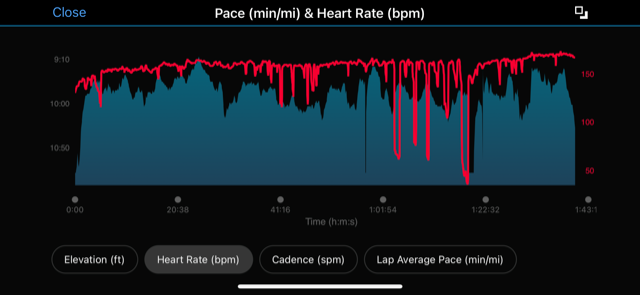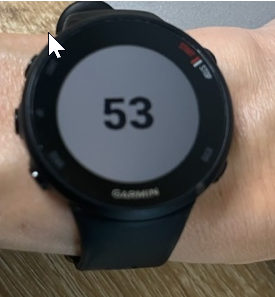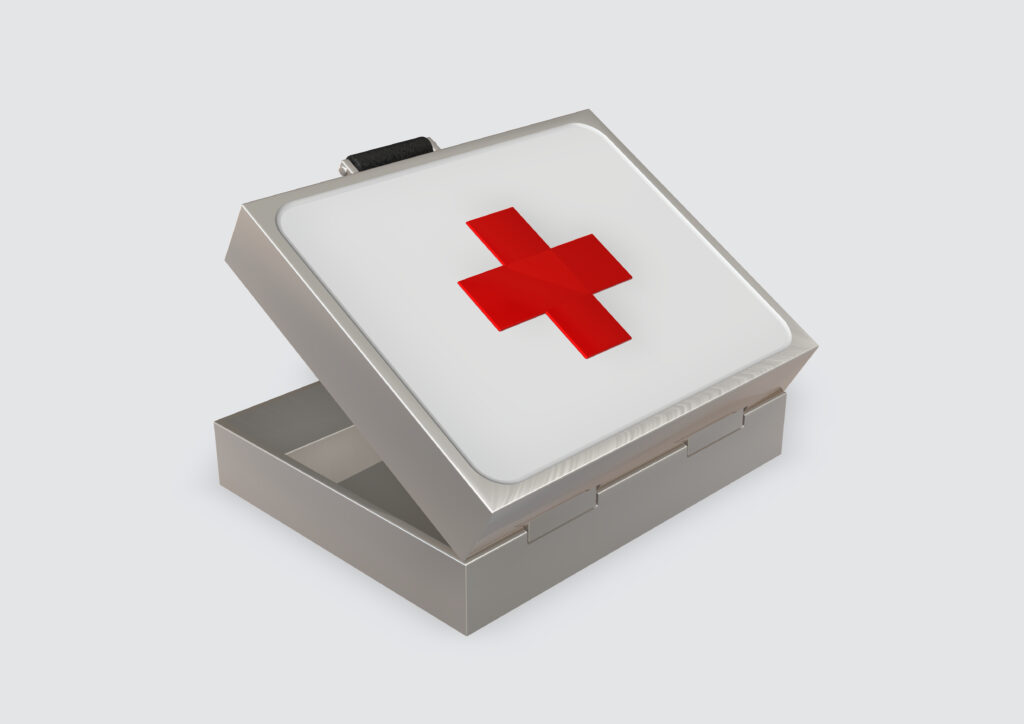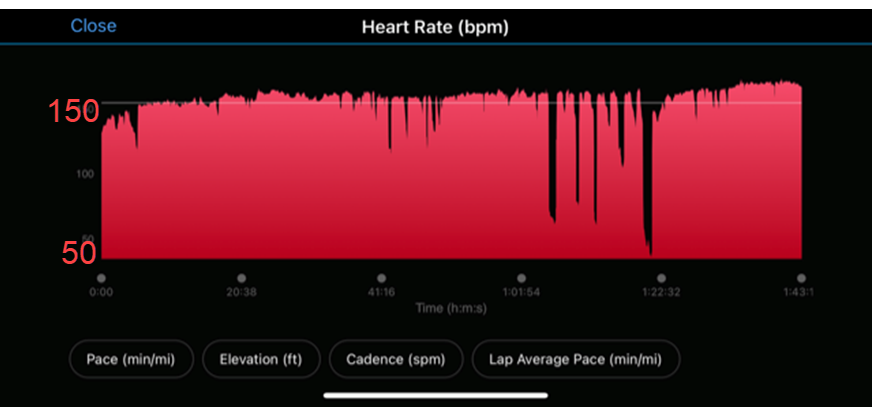
Have you noticed any drops in heart rate while running? This can be quite alarming if this has happened to you. I know I was quite concerned when I recently experienced this and I’ve learned quite a few things you may also benefit from.
There are many reasons why a person’s heart rate can drop dramatically during exercise and they are not all serious. This could be due to an issue with your heart or external factors that are affecting the functioning of your heart. Knowing the surprising reasons why this happens can help you take action to safeguard your mental and physical health.
It can be alarming to suddenly see your heart rate plummet in the middle of a hard run. Understanding basics about how the heart functions, paying attention to how you feel, and learning reasons why this can happen is crucial for runners. Read on to find out more about what this can mean for you.
The most important question: how do you feel?
The heart’s job is to pump blood around the body. If it doesn’t pump the needed blood, the back of the brain will be the first area to start noticing it and you will know.
If you are getting less oxygen and blood to the back of the brain, the immediate result is to start feeling dizzy or you black out. It is important to immediately stop exercising and drop to the ground if you feel dizzy.
If you are not experiencing dizziness then it is likely that the body is getting enough blood regardless of the number on your heart rate monitor. The number is not as important as the how you feel and any symptoms you experience.
There is a good explanation by a cardiologist as why you can experience a low heart rate and actually be fine. He explains that as the heart slows down, it has more time to fill with blood and thus is able to pump more blood with each beat. So even though it’s not pumping as fast, it doesn’t mean it pumping less blood to the organs and body.
While this explanation is reasonable for ones with chronic low heart rates, this is not likely the cause if you experience a sudden drop during exercise. It is reassuring to know though that it is very rare for the heart to stop working due to a low heart rate. See link here for the video by the cardiologist.
7 common reasons heart rate drops when exercising

There are two main causes why a person’s heart rate may drop suddenly during exercise. One is an indication of a problem or issue with the heart itself. Developing a heart condition or suffering from a pre-existing condition is serious and one should seek immediate healthcare attention.
The second cause has to do with external factors not directly related to the heart but are impacting the heart. Some of these external factors could be temporary in nature or may be more serious requiring medical attention.
Below are seven of the most common reasons why you may experience a low heart rate during exercise.
1. Vagal stimulation: The vegus nerve regulates the heart rate and when it is excessively stimulated it can cause sudden decrease in heart rate. This can be due to many factors such as emotional stress, pain, and medications.
2. Medications: Medication such as beta-blockers can cause a lower heart rate by blocking the effects of adrenaline on the heart. Medication used to treat heart conditions and high blood pressure are some examples that could be causing the low heart rate.
3. Heart abnormalities: Bradycardia is a heart condition characterized by an abnormal heartbeat that causes a sudden drop in heart rate during physical exerciser. This condition can disrupt the normal electrical signals that control he heart rate.
4. Cardiac Conditions: Ischemic heart disease and aortic stenosis are a couple of heart conditions that can cause a reduced supply of blood to the heart. This heart rate will decrease due to this reduced supply to compensate for the decreased oxygen being delivered.
5. Dehydration and electrolyte imbalance: Electrical conduction of the heart can be affected by insufficient fluid intake or mineral imbalances. Low levels of potassium and magnesium in particular can cause a drop in heart rate. Electrolyte imbalance can also cause irregular heart rates similar to afib.
6. Temperature-related issues: Extremely temperatures, especially heat, can cause the body to redirect blood flow to the skin for cooling purposes. This can result in a lower heart rate temporarily.
7. Athlete’s heart: Highly trained athletes may develop a condition known as athlete’s heart. This is where the heart becomes larger and more efficient leading to lower resting heart rates and decreased response during physical activity.
Warning signs to take seriously

Any sudden drop in heart rate during running may indicate a more serious heart or health issue. It is always advisable to seek the attention of medical professions and get a proper diagnosis.
Be sure to follow up with health care provider is you experience any of the following symptoms:
- Lack of energy
- Low stamina
- Dizziness
- Weakness
- Chest pains
- Confusion
- Heart palpitations or flutters
Even if you do not experience any of the above issues, it is good to pay attention to your body. Your heart rate may be the first indicator of other issues brewing such as over-training, injury, and fatigue. For more on using your heart rate for good recovery see my article here.
My experience with dramatic drop in heart rate

I had recently changed my training program to a much more aggressive training cycle. The program involved three key runs each at higher paces. It wasn’t long into the program when I started having issues.
As my training ramped up, I noticed a sudden drop in heart rate with my Polar HR monitor as it was connected to my headphones. I quickly looked at my Garmin and saw that my heart rate had dropped to 50 bpm.
As I felt fine, I wasn’t all that concerned but rather curious. Was this a sign that my fitness was improving? How long would it stay there? As the seconds ticked by, I began to wonder if this was safe.
It returned to a normal heart rate after 30 seconds and I finished the run. I really didn’t think much about it until it happened again on my next run and lasted for about a minute. I immediately started walking and eventually completed the run at a lower pace.
The same thing happened on my next run, making it three runs in a row! I was quite alarmed and did a lot of research on the issue as well as making a doctor appointment.
After much research, as I never felt dizzy, lightheaded, or had any other symptoms during my runs I cautiously continued running. Most of my runs were now done at a lower heart rate and I made sure I was well hydrated.
I have not had any other issues since that third run and the doctor visit all came back as normal. It was never determined what caused the issue, but I suspect it was dehydration, electrolyte imbalance, training too hard, or a combination of the three.
I have been training injury free and with good results since then and continue to monitor my heart rate. I attribute this success to paying attention to my heart rate and making sensible adjustments. For more on heart rate monitors for beginners see my article here.
Key Takeaways
Many people can have a drop in heart rate while exercising but may be unaware of it without a heart rate monitor. If you are not experiencing any warning signs like dizziness, there is no need to panic.
While it doesn’t always mean there is a serious health issue, you should follow-up with a medical professional and make adjustments to your training program. You may find, like I did, that a few simple adjustments are all that is needed to get you back on track.